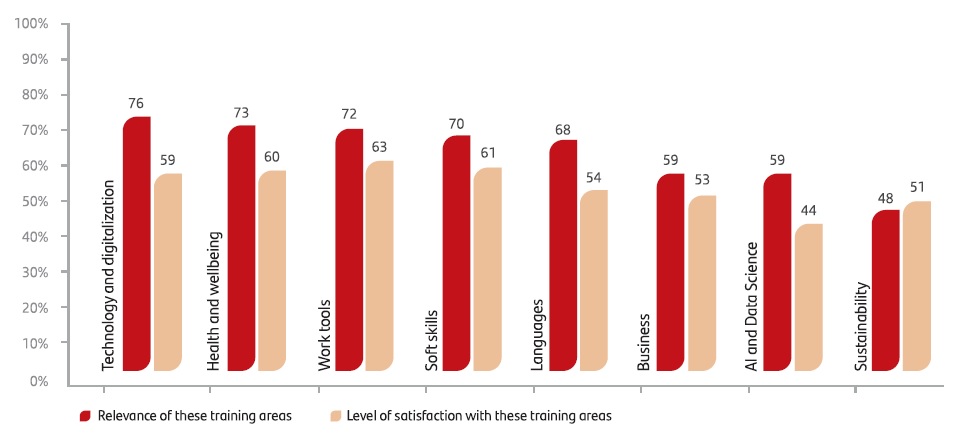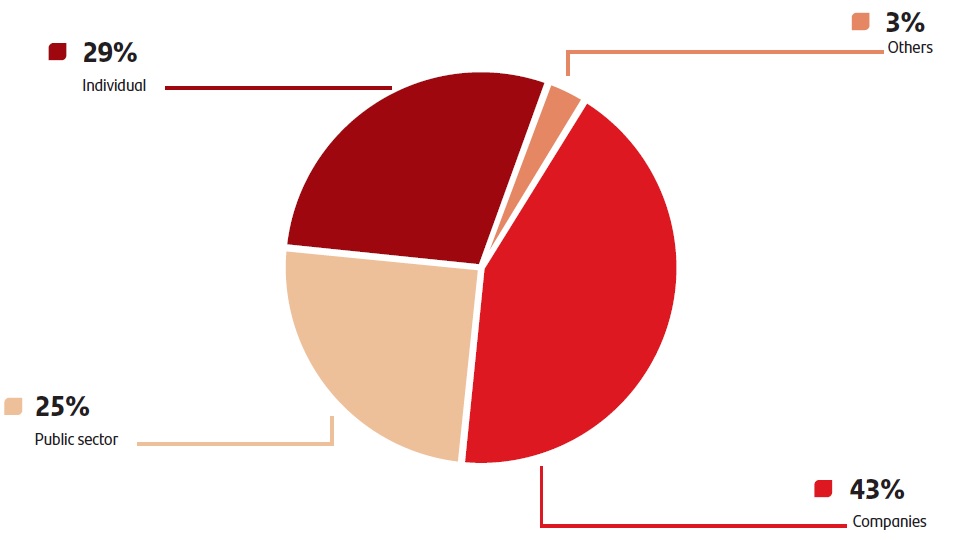Chapter 1
Rebuilding the learning path


- Press Room
- Tomorrow’s skills
- Rebuilding the learning path
- 81% feel the need to continue broadening their skill set through lifelong learning, increasing to 87% among those who studied at university, which shows a clear preference to keep learning.
- 38% of the survey participants who studied at university believe that the education they received before entering the job market did not prepare them sufficiently.
- Of all participants, 43% would study the same subject, whereas 39% would choose something else. 18% would prefer to learn a trade or self-teach.
- 45% think that practical experience and informal education will prove more important than an official certificate through formal education, especially in North America and Europe.
- 43% think that companies should take the reins when it comes to their employees’ lifelong learning, while 29% assume this responsibility for themselves and one in four say that the public sector should shoulder the burden.
Education has gone from being a section in our CV to a more free-flowing, cross-cutting component driven by advances in technology. The need to learn and develop new skills throughout life to achieve individual goals and address collective challenges is more evident than ever.
Against this backdrop, the Tomorrow's skills report finds that traditional education is no longer enough to address the challenges of today's job market. Though 60% of the survey participants hold their mandatory education in high regard, 38% believe it failed to prepare them for the world of work. Opinion on this varies — young people and those who only went as far as completing mandatory education are more sure of this failure, whereas those who went to university report greater satisfaction, highlighting the role of universities as drivers of opportunity.
Nonetheless, practical experience and informal education (self-teaching, courses, workshops, etc.) are being increasingly sought after, especially in Europe and North America. In fact, 45% see these as more important than formal education.

Willingness to learn hindered by cost and lack of time
Education is a vital component of our lives and making the decision on what to study as not as straightforward as it may seem. In fact, many people would turn back the clock and choose something different in light of today’s job market and the emergence of new professional opportunities.
In particular, 43% of the survey participants would study the same subject, whereas 39% would choose something else. 18% would prefer to learn a trade or self-teach.
 Total percentage of survey participants who consider these areas as key to their career development
Total percentage of survey participants who consider these areas as key to their career development
81% feel the need to continue broadening their skill set through lifelong learning, increasing to 87% among those who studied at university, which shows a clear preference to keep learning. Nonetheless, cost (44%) and a lack of time (31%) are the main barriers to undertaking further training.
However, who should be responsible for training employees? 43% think it should fall on companies, while 29% assume the responsibility for themselves. One in every four participants consider it up to the public sector. 
Total percentage of survey participants who agree with these statements under the question “Who should offer lifelong learning?”
We have to get students ready to address the increasingly complex challenges that society is facing worldwide. This report is the latest reminder that our primary and secondary education systems were built for different times. Communities the world over have to rethink their systems to help students carve out a better future for themselves and everyone else. We have to foster their ability to act, their awareness, their connection to people and the planet, their problem solving and their critical thinking so they can pursue meaningful careers in a changing economy.
Wendy Kopp, Co-founder and CEO of Teach For All


